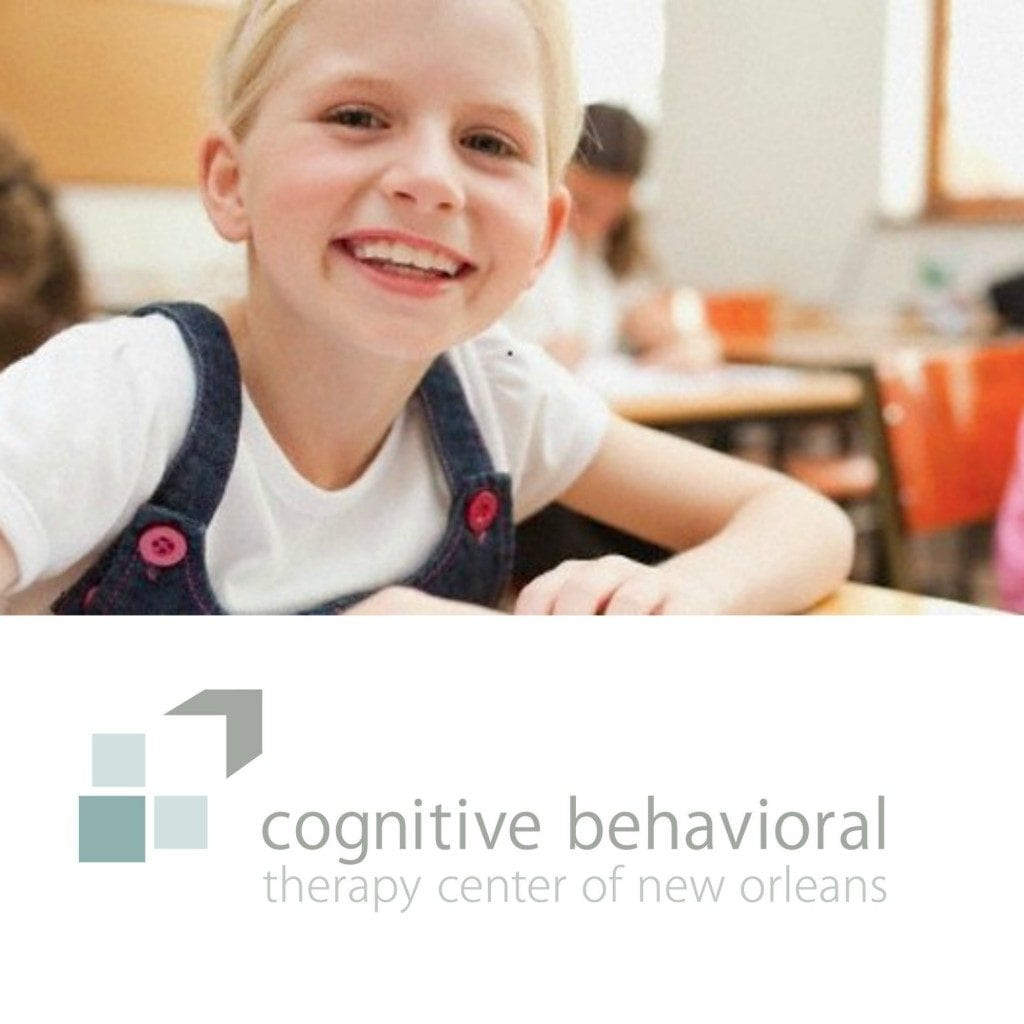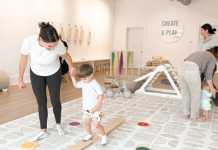Disclosure: this is a sponsored post from The Cognitive Behavioral Center of New Orleans. We have received a lot of requests for more content geared at issues pertaining to school choice and readiness, and the content contained here should help many New Orleans families navigate the difficult task of securing a psychologist to evaluate their children for school.
As parents, perhaps the greatest task of our lives is to ensure that our children are happy, healthy and grow up to be smart, secure and educated individuals. Until I had my son 2 years ago, I was naive to the fact that for some parents (especially here in New Orleans), this process sometimes starts in utero with school and daycare waiting lists.
Even more nerve wracking and complicated than the dreaded wait list is the notion that many schools in and around New Orleans are requiring some form of psychological or intelligence testing for a child to supplement their application for admission. Psychologists unaffiliated with the schools typically perform these evaluations to ensure that the assessment is fair and unbiased but how do you find the right psychologist?
requiring some form of psychological or intelligence testing for a child to supplement their application for admission. Psychologists unaffiliated with the schools typically perform these evaluations to ensure that the assessment is fair and unbiased but how do you find the right psychologist?
Most moms I’ve talked to find “shopping” for a psychologist to be a difficult and anxiety filled task. An additional stress is the thought that someone whom we have never met is going to meet with our child for a few hours and then evaluate them! What if the child is having a bad day? Or ate cookies for breakfast instead of a banana? Will this affect their score? These are all legitimate questions, and the right psychologist will answer these and more to help you alleviate any concerns.
Here is a quick “how to” guide to for finding an exceptional psychologist to meet the needs of your child:
- Check credentials: Make sure the psychologist you choose is a licensed, doctoral level psychologist. Professionals with Masters Degrees cannot perform assessments that are required for school admissions or for learning disorders and other common childhood diagnoses.
- Ask who will perform the assessment: Find out ahead of time if the person who will work with your child has experience with children. Seems like a simple enough question, but you may be surprised at how many individuals only have experience working with adults.
- Ask about time frame: Make sure to ask not only how quickly you can be seen, but how long you will have to wait to receive your report once testing is completed.
- Ask how long the report will be and what it will include: You can learn a lot about a practice just by asking this question! At The Cognitive Behavioral Center of New Orleans we have had the pleasure of working with families who choose our practice not only because of a school requirement but because they want to get an idea of their child’s strengths and weaknesses in order to support their children’s growing needs. I recently worked with a three and a half year old. His mom shared that he had some developmental delays
 during his first two years and was interested in learning how those delays may affect his ability to learn once he was enrolled in school. Our testing revealed not only what his IQ score was but it also highlighted particular strengths and relative weaknesses. Additionally, we provided the family with detailed recommendations regarding how best to support his strengths and ways in which we can remediate some of his shortcomings. We receive feedback regularly about how important this is for parents in planning activities and in choosing the best school for their children to thrive in.
during his first two years and was interested in learning how those delays may affect his ability to learn once he was enrolled in school. Our testing revealed not only what his IQ score was but it also highlighted particular strengths and relative weaknesses. Additionally, we provided the family with detailed recommendations regarding how best to support his strengths and ways in which we can remediate some of his shortcomings. We receive feedback regularly about how important this is for parents in planning activities and in choosing the best school for their children to thrive in. - Discuss goals of testing: If you have a specific goal in mind (e.g. getting classroom accommodations or diagnosing learning disabilities), ask the psychologist if they have experience in this area and what the testing may look like.
- Interview your psychologist: Ask if you can schedule a consultation to meet with or speak to the psychologist that will be working with your child. Ask them all of the questions listed above and any others you may have!
- Special Accommodations: For children and adolescents, make sure the psychologist can accommodate any special needs or preferences. For example, for a very anxious child, could the psychologist do the testing over several days? What if it’s your little one’s nap time or snack time? Can the psychologist be flexible and understanding of the scheduling?
Testing results can help parents in educational planning, offer insight into a child’s behavior and learning characteristics, and help determine eligibility for special school programs. Having your child evaluated by a psychologist can be a daunting process, but it truly does not have to be! The clinicians at The Cognitive Behavioral Therapy Center of New Orleans have extensive experience working with little ones as young as 3 and their families. Our goal is to make sure that a trip to the doctor can be fun instead of scary. We also work with parents to ensure that we meet our goals in an efficient and timely manner. Appointments can usually be scheduled within a week of your call and free 25 minute consultations are available (where you can ask all of the above questions). For more information call (504) 383-3815. You can also feel free to reach out for more information on Facebook or Twitter.
Dr. Urmi Jani
 Dr. Urmi Jani, M.A., M.S., Psy.D. received her doctorate in Clinical Psychology at the Philadelphia College of Osteopathic Medicine, in Philadelphia PA. She has extensive experience working with children and adolescents and is the first post-doctoral fellow at the Cognitive Behavioral Therapy Center of New Orleans. She also served as adjunct faculty in the psychology department at Loyola University of New Orleans. Dr. Jani, a recent transplant to New Orleans from the Northeast, loves exploring the city with her two year old son, Riyan.
Dr. Urmi Jani, M.A., M.S., Psy.D. received her doctorate in Clinical Psychology at the Philadelphia College of Osteopathic Medicine, in Philadelphia PA. She has extensive experience working with children and adolescents and is the first post-doctoral fellow at the Cognitive Behavioral Therapy Center of New Orleans. She also served as adjunct faculty in the psychology department at Loyola University of New Orleans. Dr. Jani, a recent transplant to New Orleans from the Northeast, loves exploring the city with her two year old son, Riyan.

















It’s good to know these psychological evaluations can ultimately help parents to make plans for their child’s education and understand them better. Having this information can do a lot to help the parent learn how to better interact with their child, too, depending on their needs. It’s important to know about any accommodations you may need to make for your child so that they can feel successful and good about themselves.